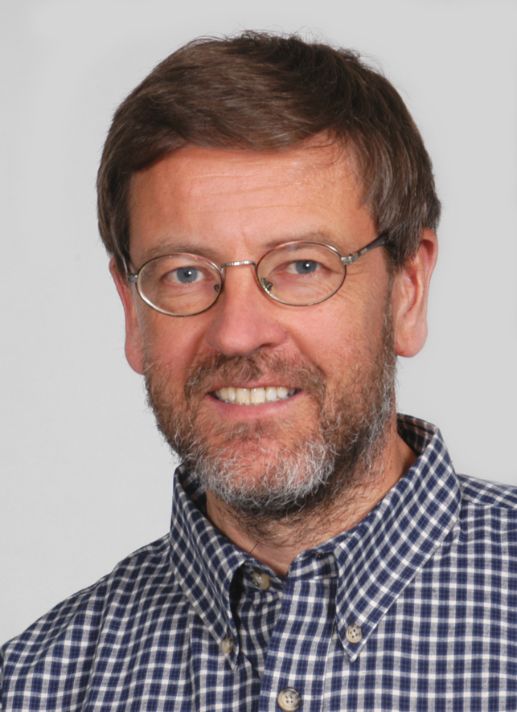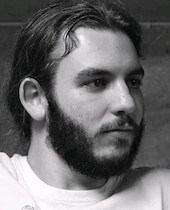Events - Page 13
Abstract: T cell activation is initiated upon T cell receptor (TCR) binding to cognate peptide-MHC complexes on the surface of antigen presenting cells (APCs). This initiates the formation of the immunological synapse – a specialized hub for bidirectional membrane transfer between T cells and APCs which is essential for processes such as downregulation of triggered TCR and T cell-mediated stimulation of B cells. Here, I will present some recent advancements in our understanding of how this is regulated.
This talk is part of the Mechanics Lunch Seminar series. Bring-your-own-lunch and lots of questions. Hybrid format via Zoom possible on demand (contact timokoch at uio.no)
The new Department of Mathematics seminar series will present seminars of interest to all sections at the Department.
It will start off with Nils Lid Hjort talking about the 2022/2023 CAS project Stability and Change, which is joint with PRIO.
Abstract: What links a baby’s first breath to adhesive debonding, enhanced oil recovery, filtration or multiphase microfluidics? These processes all involve two-phase flows in rigid or elastic confined vessels and are often prone to interfacial instabilities. The canonical viscous fingering instability, which occurs when air displaces a viscous fluid in the narrow gap between two parallel plates, offers a versatile testbed for such phenomena. In this talk, I will use both experiments and numerical simulations of depth-averaged models to explore several aspects of bubble dynamics in Hele-Shaw cells. I will first show how the onset of fingering can be suppressed when replacing the upper plate of the vessel with an elastic sheet. Interfacial flows in narrow gaps can also exhibit considerable disorder, but they are rarely investigated from a dynamical systems’ perspective. I will show how compliance can promote rich multiplicity of front propagation modes in a channel before turning to bubble propagation in a rigid channel with a depth perturbation. There I will explore how the bubble’s organised transient dynamics is orchestrated by weakly-unstable steady propagation modes, and how its long-term behaviour may be practically unpredictable.
This talk is part of the Mechanics Lunch Seminar series. Bring-your-own-lunch and lots of questions. Hybrid format via Zoom possible on demand (contact timokoch at uio.no)
Doctoral candidate Giovanni Domenico Di Salvo at the Department of Mathematics, Faculty of Mathematics and Natural Sciences, is defending the thesis Proper Holomorphic Embeddings of open Riemann Surfaces into C2 and holomorphic mappings between complex manifolds with dense images for the degree of Philosophiae Doctor.
Abstract: A random, labyrinthine pattern emerges during slow drainage of a granular-fluid system in two- dimensional confinement. Compacted grains are pushed ahead of the fluid-air interface, which becomes unstable due to a competition between capillary forces and the frictional stress mobilized by grain-grain contact networks. We reproduce the pattern formation process in numerical simulations and present an analytical treatment that predicts the characteristic length scale of the labyrinth structure. The pattern length scale decreases with increasing volume fraction of grains in the system and increases with the system thickness. By tilting the model, aligned finger structures, with a characteristic width, emerge. A transition from vertical to horizontal alignment of the finger structures is observed as the tilting angle and the granular density are varied. The dynamics is reproduced in simulations. We also show how the system may explain patterns observed in nature, created during the early stages of a dike formation.
This talk is part of the Mechanics Lunch Seminar series. Bring-your-own-lunch and lots of questions. Hybrid format via Zoom possible on demand (contact timokoch at uio.no)
C*-algebra seminar by Alexander Stolin
C*-algebra seminar by Alexander Mang (Saarland University)
Doctoral candidate Jakob Schreiner at the Department of Mathematics, Faculty of Mathematics and Natural Sciences, is defending the thesis Patient Specific Computational Models of the Brain and Electroconvulsive Therapy for the degree of Philosophiae Doctor.
Doctoral candidate Elisa Cazzador at the Department of Mathematics, Faculty of Mathematics and Natural Sciences, is defending the thesis Topics in the geometry of spaces of symmetric tensors for the degree of Philosophiae Doctor.
Abstract: Because of their huge compressibility difference with their surrounding media, air bubbles in water have a special relationship with acoustic waves: they are sub-wavelength resonators. In this presentation, I will show that this characteristic has great implications for both the surrounding fluid, because of the steady streaming effect, but also for the acoustic waves.
This talk is part of the Mechanics Lunch Seminar series. Bring-your-own-lunch and lots of questions.
Doctoral candidate Andrea Raffo at the Department of Mathematics, Faculty of Mathematics and Natural Sciences, is defending the thesis Mathematical methods for geometry reconstruction and shape analysis for the degree of Philosophiae Doctor.
We introduce SMARTboost (boosting of symmetric smooth additive regression trees), a machine learning model capable of fitting complex functions in high dimensions, yet designed for good performance in small n and low signal-to-noise environments. SMARTboost inherits many of the qualities that have made boosted trees the most widely used machine learning tool for tabular data; it automatically adjusts model complexity, handles continuous and discrete features, can capture nonlinear functions in high dimensions without overfitting, performs variable selection, and can handle highly non-Gaussian features. The combination of smooth symmetric trees and of carefully designed Bayesian priors gives SMARTboost an edge (in comparison with a state-of-the-art tool like XGBoost) in most settings with continuous and mixed discrete-continuous features. Unlike other tree-based methods, it can also compute marginal effects.
Doctoral candidate Mihaela-Alexandra Puica at the Department of Mathematics, Faculty of Mathematics and Natural Sciences, is defending the thesis Advances in Wind Power Modeling: Merging Research and Market Experience for the degree of Philosophiae Doctor.
This talk is part of the Mechanics Lunch Seminar series. Bring-your-own-lunch and lots of questions.
Doctoral candidate Gard Olav Helle at the Department of Mathematics, Faculty of Mathematics and Natural Sciences, is defending the thesis Instanton Floer Homology and Binary Polyhedral Spaces for the degree of Philosophiae Doctor.
Abstract: This talk is about the non-integer (fractional) derivative, its mathematical formulation by Abel in 1823, and present-day applications in modeling power-law behavior. These applications are in acoustics of complex media like tissue and sediments as well as in rheology, turbulence, and dielectrics. It will build on my book “Waves with Power-Law Attenuation”, Springer, 2019.
The talk will be streamed online. Please contact "timokoch at uio.no" for the Zoom link. This talk is part of the Mechanics Lunch Seminar series. Bring-your-own-lunch and lots of questions.
C*-algebra seminar talk by Johannes Christensen (KU Leuven)
Abstract: Gravitational settling of a droplet in air onto a soft substrate is a ubiquitous event relevant to many natural processes and engineering applications. We study this phenomenon by developing a three-phase lubrication model of droplet settling onto a solid substrate coated by a thin, soft compressible layer of elastic material. By combining scaling analysis, analytical methods and numerical simulations we elucidate how the resulting droplet dynamics is affected by the soft layer. We discuss extensions to droplet settlings onto thin viscous liquid films and elastic sheets. Our results provide new insight into the coupled interactions between droplets and solids coated by a thin film of a soft material.
Talk can be followed online on Zoom as well as in person. Please contact "timokoch at uio.no" for the Zoom link. This talk is part of the Mechanics Lunch Seminar series. Bring-your-own-lunch and lots of questions.
Maintenance plays a crucial role in ships and especially in the vital electric propulsion system. Intelligent predictive maintenance idealistically aims at preventing system failures and minimizing needless repairs, i.e., predicting failure likelihood and time to failure while providing the crew explainable predictions and recommending the best action for timely intervention. This presentation will cover a relevant work in collaboration with Sensor Systems in BigInsight, particularly a paper published under https://doi.org/10.1109/TII.2022.3144177. The failure prediction approach is driven by event logs, which include warnings, alarms, and operational information that describe all the happenings onboard the ship. The failure prediction objective is turned into classification and regression tasks; however, the training data pose three challenges. The events are irregular textual messages. The training data samples are not labelled. The datasets are extremely imbalanced, due to sparse failure events and multiple failure modes. The problem is casted into a weakly supervised machine learning framework. In a multiple instance learning process, the ungiven data labels are learned recursively while fitting the model parameters using deterministic annealing. The overall approach was tested on real ship data, and it successively forecasted few propulsion failures with explainable causes.
Doctoral candidate Cédric Le Texier at the Department of Mathematics, Faculty of Mathematics and Natural Sciences, is defending the thesis Combinatorial Patchworking, Real Tropical Curves and Hyperbolic Varieties for the degree of Philosophiae Doctor.







